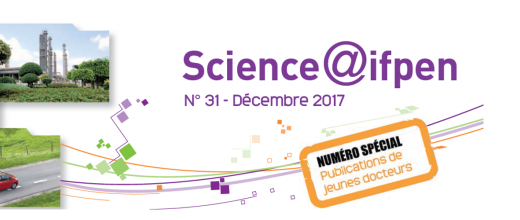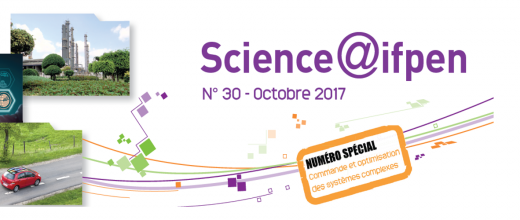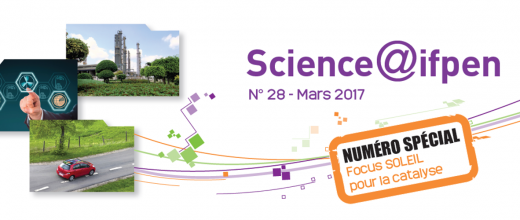

News in brief
Energy in vehicles: we’ve got it under control!
In hybrid vehicles, onboard algorithms are aimed at splitting power between the various energy sources in order to minimize fuel consumption and/or pollutant emissions. This real-time management

News in brief
Floating wind turbine: increasing reliability in an “ocean of possibilities”
The optimal design of mechanical structures is hampered by the imperfect knowledge of the environmental conditions under which they will operate. The systematic incorporation of the resulting

News in brief
Optimized design of processes: enhanced efficiency, even with ethanol
The optimized design of processes is a complex but promising approach in terms of the expected benefits for the efficiency of industrial systems and their operating performance. It is an area that was

News in brief
Exhaust gas heat: optimal recovery through supervision and control
Recovering heat from exhaust gases using the Rankine thermodynamic cycle a is one of the avenues being explored to reduce the energy consumption of IC engines. Tried and tested for stationary

News in brief
The control of floating platforms for offshore wind turbines: being active reduces fatigue
The fatigue resistance of floating offshore wind turbines is significantly affected by the wave forces to which their supporting platforms are exposed. Passive and active damper systems — preferably

News in brief
Extrusion: playing the SAXS for success!
Alumina, the archetypal material used for hydrotreatment catalyst supports, has a porous structure at supramolecular scales, determining the transport of oil feeds within it. This structure is largely

News in brief
ROCK sets the rhythm for catalyst activation
The development of more efficient hydrotreatment catalysts, based on molybdenum (Mo), requires advanced characterization methods that allow materials to be studied in conditions that match those of


